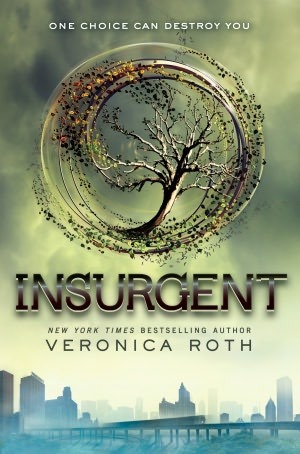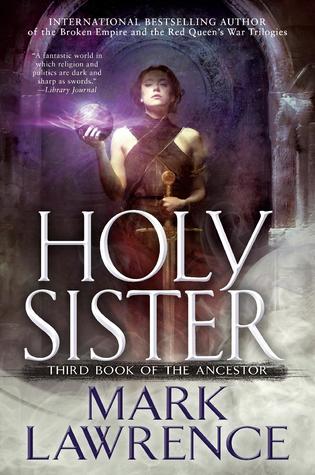
Synopsis:
One choice can transform you—or it can destroy you. But every choice has consequences, and as unrest surges in the factions all around her, Tris Prior must continue trying to save those she loves—and herself—while grappling with haunting questions of grief and forgiveness, identity and loyalty, politics and love.
Tris's initiation day should have been marked by celebration and victory with her chosen faction; instead, the day ended with unspeakable horrors. War now looms as conflict between the factions and their ideologies grows. And in times of war, sides must be chosen, secrets will emerge, and choices will become even more irrevocable—and even more powerful. Transformed by her own decisions but also by haunting grief and guilt, radical new discoveries, and shifting relationships, Tris must fully embrace her Divergence, even if she does not know what she may lose by doing so.
Rating: 🌟🌟🌟
Part of what made Divergent so enjoyable was its fast pace.
Despite being over 400 pages long, Tris's journey to become Dauntless is
so engaging it flies by. In Insurgent, pretty much everything I loved about Divergent goes away: the fast pace, the captivating competition, the slow burn romance, and Tris's rise from the underdog. I get why Insurgent plays out the way it does, but that doesn't make it enjoyable.
Insurgent's biggest flaw is that it tries to base its plot on the mysteries of its world, but it's world-building is a mess. You can't have the crux of a story rest on a world that doesn't make sense. Unlike The Hunger Games trilogy, which has a believable and well-developed dystopian world, the Divergent trilogy is more aesthetically dystopian than actually dystopian in setting. So when you try to turn your aesthetic into a 500+ page rebellion plot, it just doesn't work.
Now, there is some good stuff in there. Tris's survivor's guilt is totally warranted after what she went through in the events of Divergent, but ultimately fails to be believable because the pacing of Insurgent is so poor. Months are supposed to be passing in this book, but if I wasn't reading closely and you asked me, I would've said two weeks. Because of that, Tris's 180 in character and conflict with Tobias as a result feels jarring. Simply put, Tris didn't at all feel like the sixteen-year-old brutal badass I fell in love with in the first book. And Tobias, who I was swooning over in Divergent? Literally could not care less about him or his relationship with Tris in this book.
Also, nothing really happens in Insurgent? Despite months passing? In a 500+ page book? Tris goes to some places, bullets are fired, she cries and fights with Tobias, and then the book ends with you more confused than ever about what the heck this world-building is supposed to be because this ain't it chief.
Similar to my star rating for Divergent, objectively I would say this is a 2 star read. But I did legitimately enjoy it - both in terms of nostalgia and because I expected it to be waaaay worse - so I'm giving it a 3 stars.
Insurgent's biggest flaw is that it tries to base its plot on the mysteries of its world, but it's world-building is a mess. You can't have the crux of a story rest on a world that doesn't make sense. Unlike The Hunger Games trilogy, which has a believable and well-developed dystopian world, the Divergent trilogy is more aesthetically dystopian than actually dystopian in setting. So when you try to turn your aesthetic into a 500+ page rebellion plot, it just doesn't work.
Now, there is some good stuff in there. Tris's survivor's guilt is totally warranted after what she went through in the events of Divergent, but ultimately fails to be believable because the pacing of Insurgent is so poor. Months are supposed to be passing in this book, but if I wasn't reading closely and you asked me, I would've said two weeks. Because of that, Tris's 180 in character and conflict with Tobias as a result feels jarring. Simply put, Tris didn't at all feel like the sixteen-year-old brutal badass I fell in love with in the first book. And Tobias, who I was swooning over in Divergent? Literally could not care less about him or his relationship with Tris in this book.
Also, nothing really happens in Insurgent? Despite months passing? In a 500+ page book? Tris goes to some places, bullets are fired, she cries and fights with Tobias, and then the book ends with you more confused than ever about what the heck this world-building is supposed to be because this ain't it chief.
Similar to my star rating for Divergent, objectively I would say this is a 2 star read. But I did legitimately enjoy it - both in terms of nostalgia and because I expected it to be waaaay worse - so I'm giving it a 3 stars.




